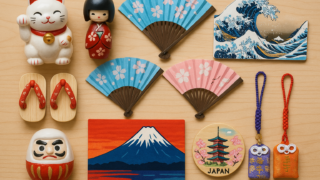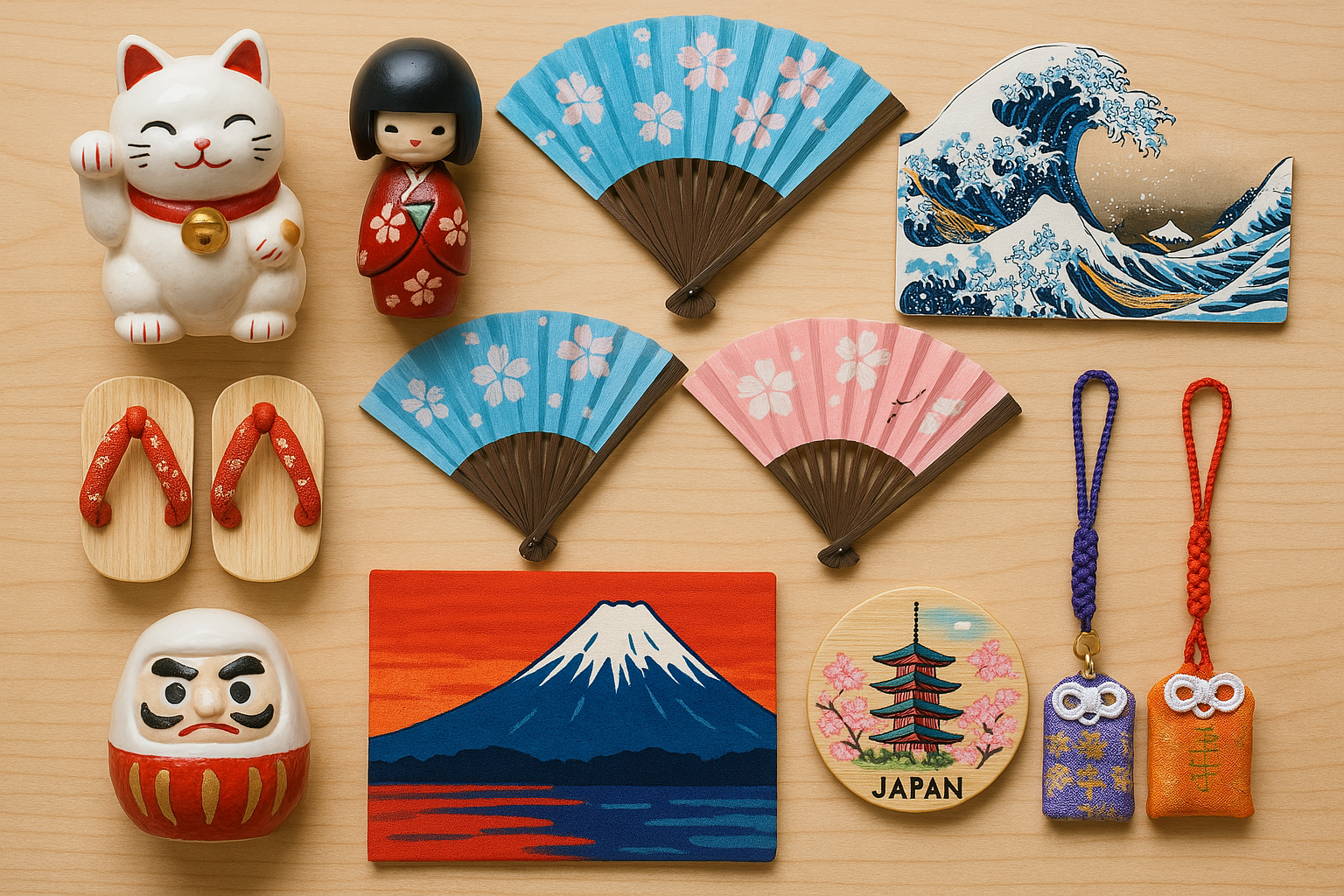Introduction: Why Organic Japanese Tea Makes the Perfect Souvenir
When visiting Japan, you’ll likely be overwhelmed by all the souvenirs, from quirky gadgets to traditional crafts. But there’s one gift that stands out in the land of tea—organic Japanese tea. It’s not just a souvenir; it’s an experience packed into a beautiful, fragrant package. Imagine bringing home a taste of Japan, one that you can sip in the comfort of your own home, while reminiscing about your journey. Organic Japanese tea isn’t just about taste; it’s about the whole process—the delicate growing techniques, the unique flavors, and the culture steeped in every leaf. And the best part? It’s as healthy as it is delicious, making it the perfect gift for your loved ones—or for yourself!
The Charm of Organic Japanese Tea
There’s something truly magical about the Japanese approach to tea. While you might think of tea as just a hot drink to wake you up in the morning, in Japan, it’s a cultural ritual, a moment of tranquility in an otherwise busy world. Organic tea is even more special—grown without the use of synthetic pesticides or fertilizers, it’s as pure as the rolling hills of Kyoto’s tea fields. Imagine sipping a cup that not only tastes good but also makes you feel good inside, knowing that it was cultivated with respect for nature. It’s like having a little piece of Japan’s natural beauty right in your cup, no passport required.
Why Choose Organic Tea Over Regular Tea?
So, why go organic when you can easily grab a regular tea bag at any store? Well, imagine biting into a perfectly ripe apple that’s fresh from the tree versus one that’s been sprayed with chemicals and grown in a controlled environment. Organic tea brings the same level of purity and authenticity to your experience. The leaves are grown without pesticides, so you get a cleaner, more vibrant flavor that packs a punch. Plus, it’s better for the environment! Organic farming promotes biodiversity and reduces pollution, so you’re not just enjoying a cup of tea, you’re supporting sustainable farming practices. It’s like drinking tea with a side of good karma.
Types of Organic Japanese Tea You Should Try
Now that you’re sold on the idea of organic Japanese tea, it’s time to dive into the different types you’ll encounter. Just like there are many types of sushi, there are many kinds of tea in Japan. Each variety offers its own unique flavor profile, and trust us, they all deserve a place in your suitcase (or your cup!). From the classic green tea to the luxurious matcha and the premium gyokuro, there’s a type for every taste preference. But which one should you choose? Let’s break down the best organic teas that you can find on your journey through Japan.
Green Tea (Sencha) – A Classic Choice
When you think of tea, you probably picture a nice cup of green tea, right? Well, in Japan, that’s probably sencha you’re thinking of. Sencha is the most popular type of green tea in Japan, and it’s like the sushi of tea: simple, reliable, and always good. What makes organic sencha stand out is that it’s grown without chemicals, allowing the natural flavors to shine through. It’s not overly bitter, nor is it too sweet; it’s just the perfect balance of grassy, slightly savory flavors with a refreshing, clean finish. You’ll feel like you’ve just taken a breath of fresh air after a long walk in the Japanese countryside. It’s like an everyday tea with a little extra something. And the best part? It’s incredibly versatile. You can sip it with meals or enjoy it as a relaxing afternoon pick-me-up.
The Health Benefits of Sencha
We all know that green tea is good for us, but organic sencha takes the health benefits to the next level. Packed with antioxidants, it’s like a little superhero for your body. The catechins in sencha can help boost your metabolism, improve digestion, and even reduce the risk of heart disease. Plus, it’s known for its calming effects—so, if you’ve been running around Japan trying to see everything, sencha is the perfect drink to slow things down and recharge. It’s not just a beverage; it’s a wellness experience in a cup. And did we mention it’s great for your skin too? Think of it as your natural beauty secret!
How to Enjoy Sencha Like a Local
Drinking sencha in Japan is not just about sipping from a cup—it’s a whole experience. The locals typically serve it in small cups, which allows you to appreciate the full flavor of the tea. The key to making the perfect sencha is to not over-brew it. Let the water cool to around 70°C (158°F), and steep the tea for just 1-2 minutes. If you’re too hasty, you might end up with a bitter taste that’ll have you wishing you’d taken the time to follow the steps. And hey, don’t forget to enjoy the tea’s aroma while you’re at it! It’s like getting a mini spa experience in your own home. Pair your cup with a traditional Japanese sweet (wagashi) for the ultimate experience—trust us, it’ll make you feel like you’re in a tea ceremony!
Matcha – The Powdered Perfection
Matcha is like the rockstar of Japanese tea. If sencha is your everyday reliable cup, matcha is the one that steals the show. This vibrant green powdered tea is made from finely ground tea leaves and is packed with flavor and energy. Matcha is like a backstage pass to Japan’s tea culture—it’s special, it’s intense, and it’s definitely worth trying. Whether you’re sipping it in a traditional tea ceremony or shaking it up in a modern matcha latte, you can’t go wrong with this ceremonial tea. It’s not just for tea lovers; it’s for anyone who wants to experience Japan in a truly unique way.
The Traditional Ritual of Matcha Tea
Drinking matcha isn’t like your average cup of tea—it’s a whole ritual. In Japan, matcha is often enjoyed in a formal tea ceremony, which can take anywhere from 30 minutes to an hour. The tea master carefully prepares the matcha by whisking the powdered tea with a bamboo whisk in a bowl, creating a frothy, vibrant green tea that’s almost too beautiful to drink (almost). This ritual is all about mindfulness, so it’s perfect for those moments when you want to slow down and appreciate the present. While you may not have time for a full tea ceremony, you can still enjoy a little bit of the experience by taking your time to sip your matcha and reflect on the moment.
Where to Find High-Quality Matcha
If you’re in Japan, you’re in luck—matcha is available just about everywhere, but to get the really good stuff, you’ll need to seek out specialty shops. Kyoto is considered the matcha capital of Japan, so if you’re planning to visit, be sure to stop by one of the local tea shops. But don’t worry if Kyoto isn’t on your itinerary. You’ll find great matcha in department stores, cafes, and even dedicated matcha specialty stores all over Japan. Just make sure to look for the good stuff—premium matcha should be vibrant green and free from any bitter, overly earthy flavors. When in doubt, ask the staff for recommendations—they’ll be happy to help you find the perfect matcha to take home.
Gyokuro – Japan’s Premium Tea
If you’re looking to splurge on something truly special, gyokuro is where you want to go. It’s considered the king of Japanese green teas, reserved for special occasions and tea connoisseurs. What makes gyokuro so special is its growing process. The tea plants are shaded for several weeks before harvest, which boosts the production of chlorophyll and amino acids, giving the tea its rich, umami flavor. The result? A tea that’s incredibly smooth, slightly sweet, and packed with deep, savory notes. Gyokuro is like the luxury car of Japanese teas—it’s refined, it’s elegant, and it’s worth the price tag. If you want to really impress someone with your tea knowledge, gyokuro is the way to go.
What Makes Gyokuro Unique?
Gyokuro’s unique growing process is what sets it apart from the rest. By shading the tea plants, farmers protect the leaves from direct sunlight, which increases the production of chlorophyll and amino acids. This results in a tea that’s incredibly smooth with a natural sweetness that’s unlike anything you’ve ever tasted. The tea is also rich in L-theanine, an amino acid known for its calming effects. So, not only will gyokuro give you a luxurious tea experience, but it’ll also help you relax and unwind after a long day of sightseeing in Japan. It’s like getting a taste of Japan’s finest craftsmanship in every cup!
How to Brew the Perfect Gyokuro
Brewing gyokuro is a delicate art, but once you get the hang of it, it’s totally worth it. Unlike other teas, gyokuro is best brewed at a lower temperature, around 50-60°C (122-140°F). Use a larger amount of tea leaves (about 5 grams per 60ml of water) and steep the tea for about 2-3 minutes. The result should be a rich, umami-packed cup that’s smooth and slightly sweet. Gyokuro is also great for multiple infusions, so don’t throw out the leaves after the first steeping! You can enjoy two or three rounds of tea from the same leaves, each with a slightly different flavor profile.
The Best Places to Buy Organic Japanese Tea in Japan
Now that you know what types of organic tea you should try, it’s time to explore where you can buy these liquid treasures. While you can find organic tea almost everywhere in Japan, there are certain places where you can really find top-quality products that will make your tea experience unforgettable. Whether you’re in the bustling streets of Tokyo or the tranquil countryside of Kyoto, there’s always a place to discover premium tea. Here are the best spots to pick up organic Japanese tea during your trip.
Tea Shops in Kyoto – A Haven for Tea Lovers
Kyoto is known for its deep connection to tea culture, so it’s no surprise that it’s one of the best places in Japan to buy organic tea. The city is filled with tea shops that range from quaint little family-run stores to grand tea houses where you can enjoy a matcha ceremony. What’s great about Kyoto is that you’re not just buying tea; you’re buying a piece of the city’s history. Many of these shops have been around for generations, offering teas that are grown in the nearby hills of Uji, the region famous for producing some of Japan’s best organic teas. Walking through the streets of Kyoto and sipping on freshly brewed sencha or matcha is an experience in itself. Don’t forget to ask the shopkeepers for their recommendations—they’ll be more than happy to share their expertise with you!
Organic Tea in Tokyo’s Specialty Stores
Tokyo is a bustling metropolis, and while it may be more famous for its neon lights and skyscrapers than its tea culture, it’s still a fantastic place to find high-quality organic tea. Tokyo’s specialty tea shops are a tea lover’s paradise. From the trendy streets of Omotesando to the traditional markets of Asakusa, there’s no shortage of places to buy organic tea. These shops offer everything from high-end gyokuro to artisanal matcha, all sourced from the best organic tea farms across Japan. Many of these stores also provide detailed information about the tea’s origin, so you can learn all about the farmers and the production process. It’s like a tea journey within the city! Keep an eye out for trendy matcha-based desserts and beverages, too—they’ll make for a perfect pairing with your tea purchase.
Where to Find Hidden Gems in Tokyo
If you want to uncover some hidden tea gems in Tokyo, head to neighborhoods like Kagurazaka, where you’ll find a number of tea shops that have been serving high-quality organic teas for decades. The shops here have a more traditional feel, and many sell rare, small-batch teas that you won’t find anywhere else. If you’re looking for something a little more modern, explore the upscale shops in the Ginza area. These stores offer luxurious tea experiences and exclusive blends that make great souvenirs for those looking to bring home something extra special. The best part? Tokyo’s tea shops often have great tasting sessions, so you can sample before you buy!
Tea Farms in Shizuoka – Experience Tea Harvesting
If you want to get even closer to the tea experience, visit Shizuoka, Japan’s largest tea-producing region. While there, you can not only buy organic tea but also visit tea farms where you can watch the tea harvesting process firsthand. Shizuoka offers several tea farm tours that take you through the entire tea-making process, from picking the leaves to drying and packaging. It’s an immersive experience that lets you understand exactly how your tea was made, making your souvenir all the more meaningful. You can also participate in hands-on activities, like tea picking, and take home fresh, organic leaves to brew your own tea at home. It’s the perfect way to deepen your connection with Japanese tea culture and bring back a one-of-a-kind souvenir.
How to Pack Organic Japanese Tea for Souvenir Gifts
So, you’ve found the perfect organic Japanese tea during your travels. Now comes the tricky part—how do you pack it so it stays fresh and intact on the long journey home? While tea is generally pretty sturdy, it’s important to take a little care when packing it as a souvenir. After all, you don’t want to get home and find that your carefully chosen tea leaves have been crushed or have lost their flavor. Here are some tips to ensure that your tea is travel-ready and stays as fresh as when you bought it in Japan.
Choosing the Right Packaging for Tea
When buying organic Japanese tea, take a look at how it’s packaged. Many high-quality teas come in airtight, resealable bags or beautifully decorated canisters that are perfect for travel. If you’re purchasing loose-leaf tea, make sure the shop wraps it in protective materials that keep out air and moisture. A sturdy box or tin container will protect the delicate leaves from crushing during your trip. Also, if you’re buying matcha, it’s usually sold in sealed packets or containers that protect the powder from light and air, which can degrade its flavor. If you want to go the extra mile, consider packing your tea in a small suitcase or bag to avoid crushing it with other souvenirs.
Tips for Keeping Your Tea Fresh on the Journey Home
To keep your organic Japanese tea fresh for as long as possible, store it in a cool, dry place. Avoid packing it with items that could spill or leak, like liquids or lotions. If you’re bringing a larger quantity of tea, consider dividing it into smaller portions to keep it fresh. Also, don’t forget that tea can be sensitive to light and temperature, so store it in a shaded area during your travels, especially if you’re taking it on long flights or road trips. It’s best to use a double layer of protection—wrap your tea in paper or bubble wrap and place it in a sturdy container for extra security.
Conclusion: Bringing the Taste of Japan Home with Organic Japanese Tea
Organic Japanese tea is not just a drink; it’s a piece of Japan you can take home with you. From the traditional sencha to the luxurious gyokuro, each type of tea offers a unique taste of Japan’s rich culture and history. Whether you’re sipping it in the comfort of your home or gifting it to a friend, organic Japanese tea brings a taste of Japan’s natural beauty and craftsmanship into your everyday life. So, the next time you’re in Japan, make sure to grab a pack (or two) of organic tea—you’ll be bringing home more than just a souvenir; you’ll be bringing home a memory, a moment of peace, and a cup of pure joy. Happy tea adventures!






コメント